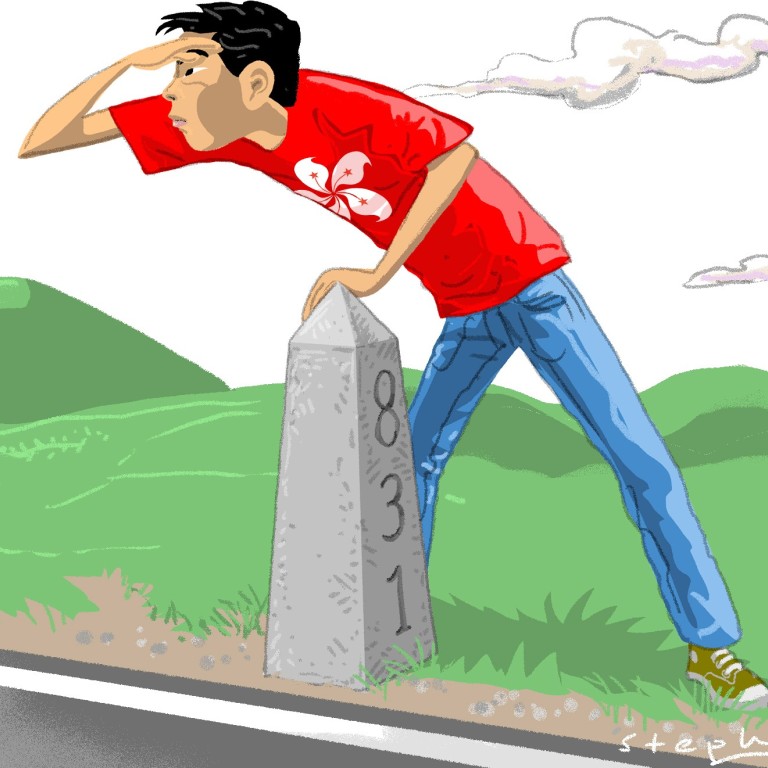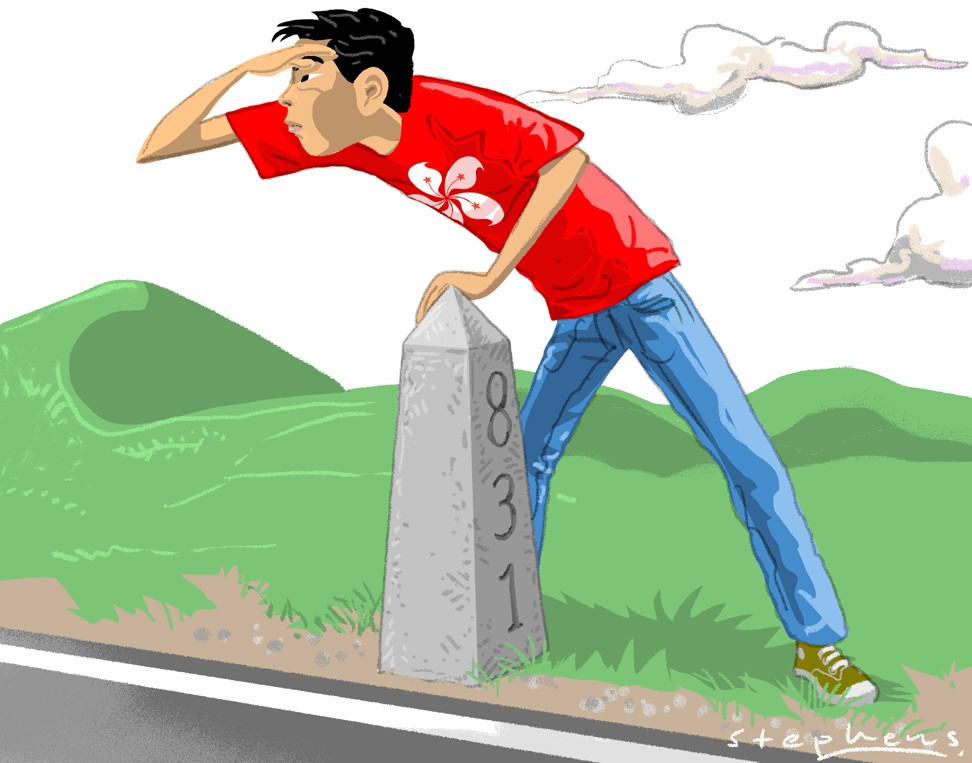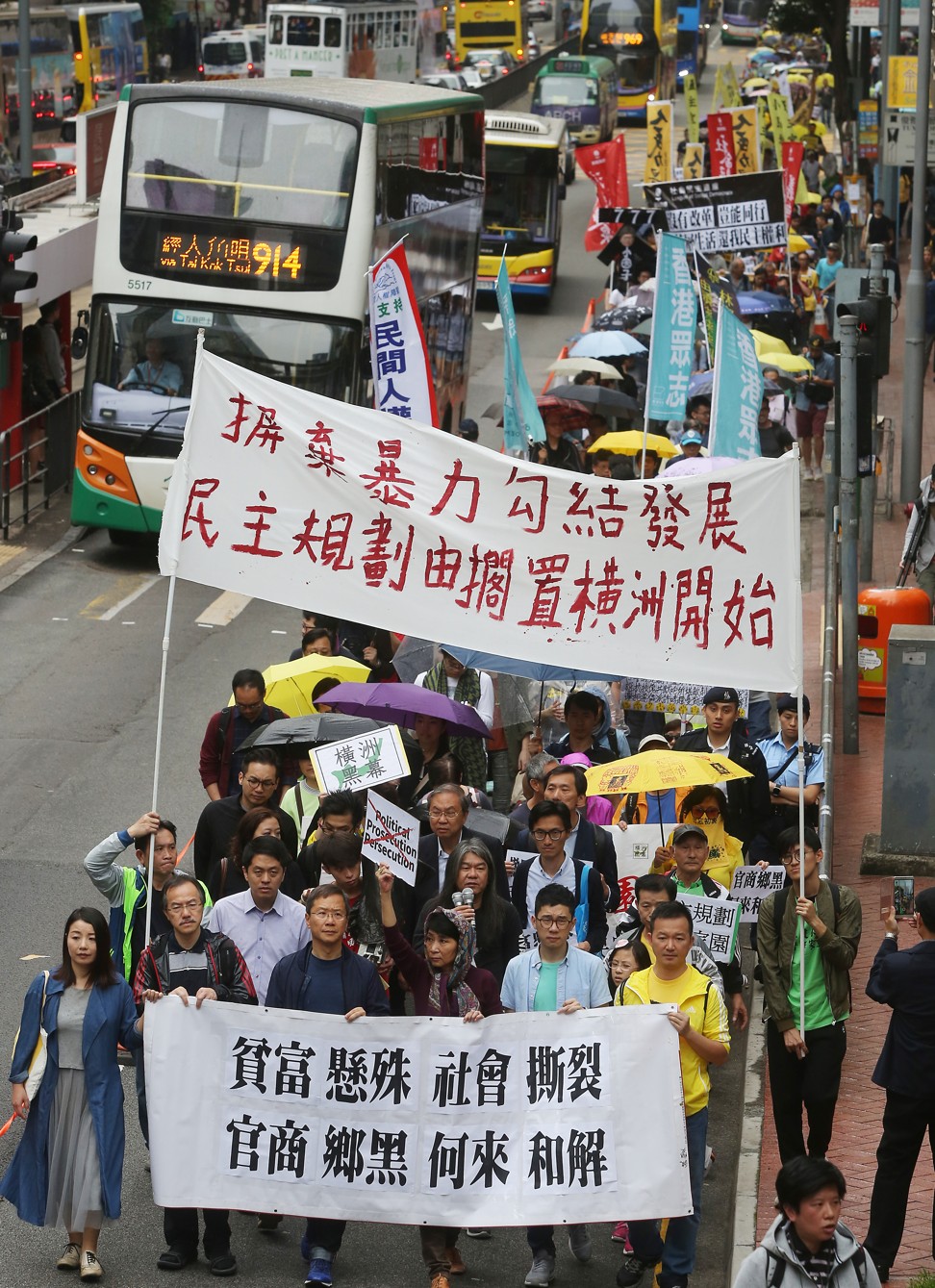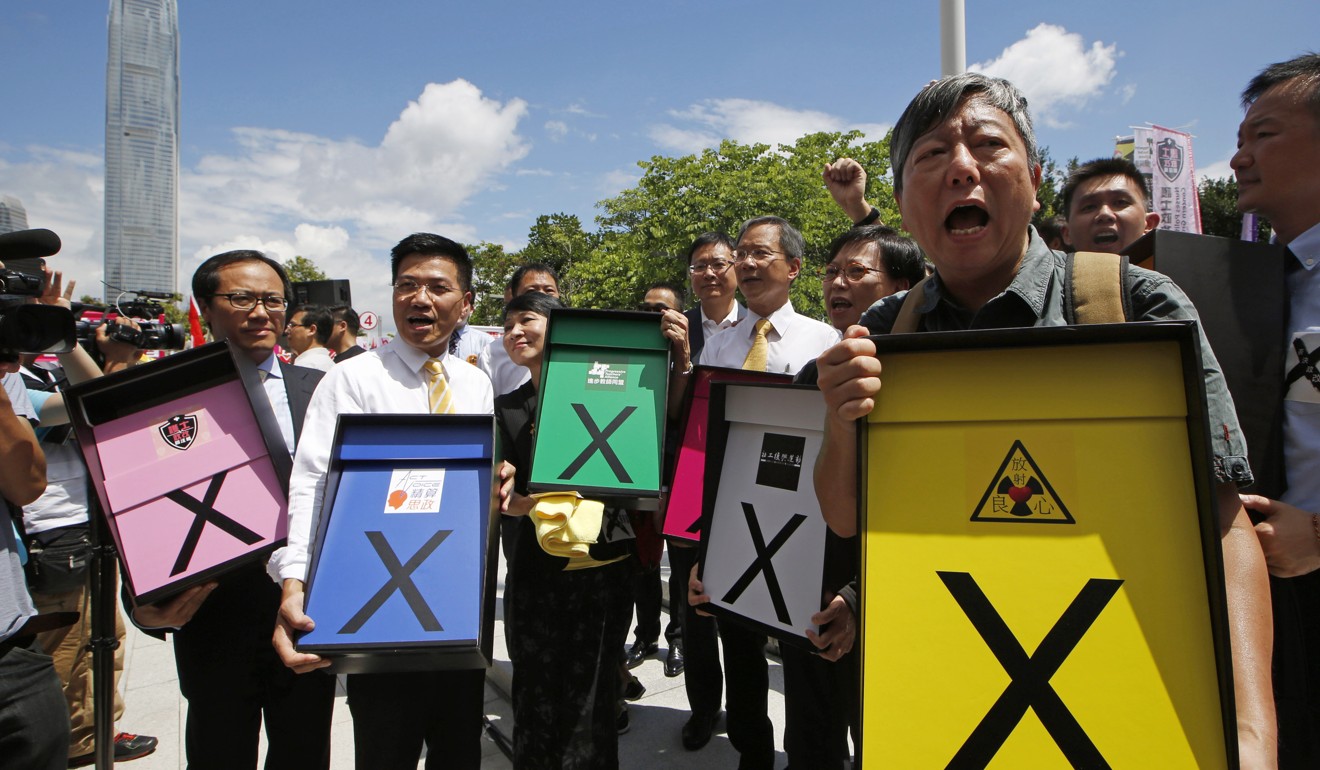
How Hong Kong can have democracy under ‘one country, two systems’
Tian Feilong says the opposition in Hong Kong needs to sever ties with the independence camp to win Beijing’s trust for political reform within the ‘831’ framework, which is a historic milestone on the road to democracy

The “full autonomy” movement launched by the opposition – with the support of local and foreign forces – is in a quandary, rendering them frustrated and powerless.
Two decades after the handover, Beijing is no longer standing on the sidelines in governing Hong Kong. It is now effectively coping with the opposition’s “full autonomy” confrontation project, by using a united front strategy and the rule of law.
The Basic Law of Hong Kong
First, the sovereignty owned by Beijing is basically not the right to govern. It also lacks the right to fully control all matters. This explains why national authority does not penetrate Hong Kong’s autonomy.
Second, Hong Kong is governed through an “executive-led” administration. But Beijing’s trust in and expectations of the chief executive become his or her “original sins”. Indirect elections are criticised as “small-circle elections”, while legislative filibusters, judicial reviews, social movements and the closed, self-governing civil service system have rendered the chief executive powerless.

Fourth, the Basic Law has a goal of dual universal suffrage: for the chief executive and legislative elections. If this goal is achieved, the pan-democrats could surpass the pro-establishment camp to become a quasi-ruling party.
Fifth, the US has taken over the UK’s role in facilitating freedom and democracy in Hong Kong, thus deepening its involvement in and control of the city’s politics.
How ‘one country, two systems’ works
‘One country’ is the primary goal and ‘two systems’ is to serve the primary goal
The primary goal of the “one country, two systems” principle is not to maintain the prosperity and stability of Hong Kong or attain a high degree of autonomy, but to achieve the modernisation and internationalisation of the country.
Only a high degree of autonomy in Hong Kong that is conducive to national development is allowed under “one country, two systems”.
What the “full autonomy” movement of the opposition camp contains is a “Hong Kong dream”, not a national one. A movement based on “two systems” without “one country” departs from the original intent of the principle.
Beijing ‘unswerving’ on ‘one country, two systems’, new chief of Hong Kong affairs says
First, the interpretation of the Basic Law in 1999 over the right of abode in Hong Kong and other controversies over the mini-constitution foiled the Hong Kong judiciary’s attempts to carry out anti-constitutional reviews using its right of final appeal. The interpretation also defined the jurisdictional limits of Hong Kong’s judiciary, and removed the possibility of “full autonomy” in its judicial system.
Second, the 2004 Basic Law interpretation over the steps to political reform confirmed Beijing’s leading role in Hong Kong’s political development.
![Activists put up banners on the Golden Bauhinia statue at the Convention and Exhibition Centre, demanding the release of [since deceased] Nobel Peace laureate Liu Xiaobo and universal suffrage for Hong Kong, on June 28. The protest came ahead of President Xi Jinping’s visit to the city for the 20th anniversary of the handover. Photo: Sam Tsang](https://cdn3.i-scmp.com/sites/default/files/images/methode/2017/10/04/3f9ae610-a8b1-11e7-ac3e-6a4e39b7ad7c_1320x770_170506.JPG)
Explain This: why all the fuss about Hong Kong independence?
Xi Jinping upholds ‘one country, two systems’ for Hong Kong
Occupy movement organisers tried to justify their actions using the platform of civil disobedience. The movement put the rule of law – a core value of Hong Kong – in peril.
Hong Kong must understand the limits of autonomy as a Chinese special administrative region
The movement also gave Beijing the impression that the rule of law is a good thing, but democracy is destructive and should be monitored by the rule of law.

Hong Kong’s legal system is undergoing ‘nationalisation’, and the opposition must realise this
We should say no to radical democracy, and Hong Kong independence has nothing to do with democracy. However, democratic universal suffrage was set as an experimental goal of the Basic Law. It was not only a political promise by Beijing, but is also a core issue for politics in Hong Kong.
Hong Kong independence has nothing to do with democracy
The 831 decision should not be seen as a roadblock for Hong Kong’s democratisation – it is a milestone in history.
Tian Feilong is an associate professor at Beihang University’s Law School in Beijing, and a director of the Chinese Association of Hong Kong and Macau Studies

